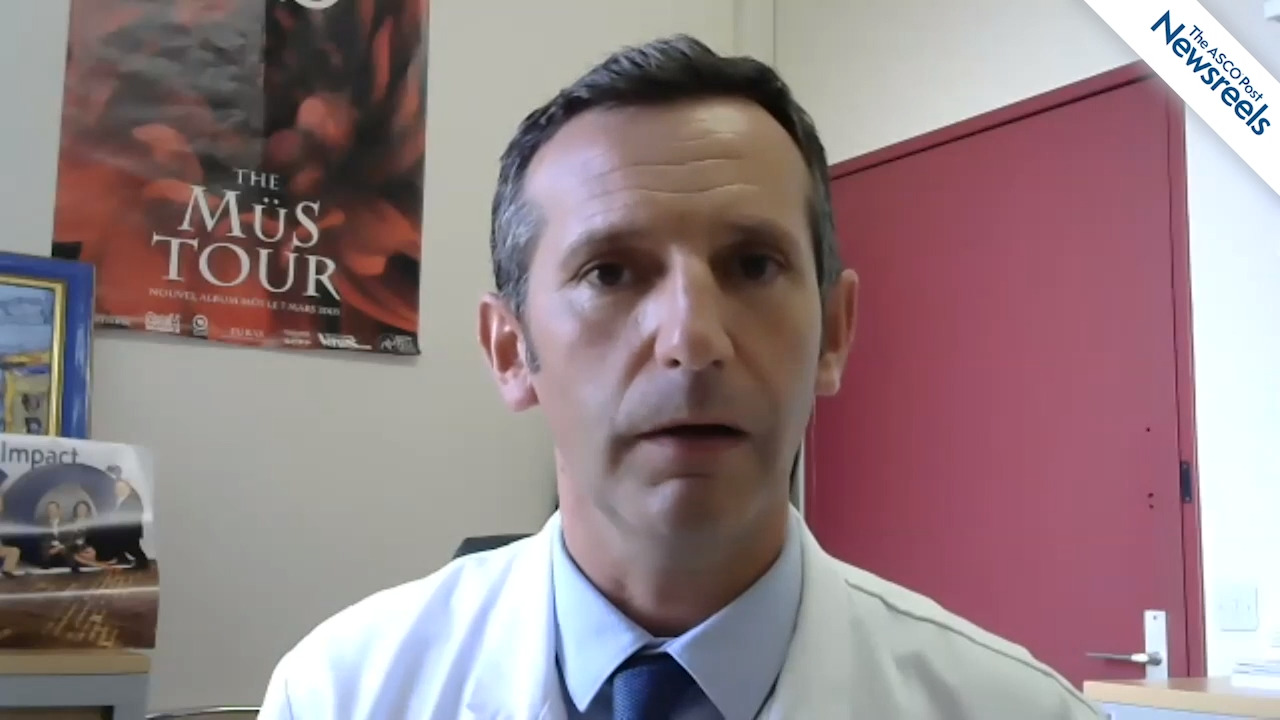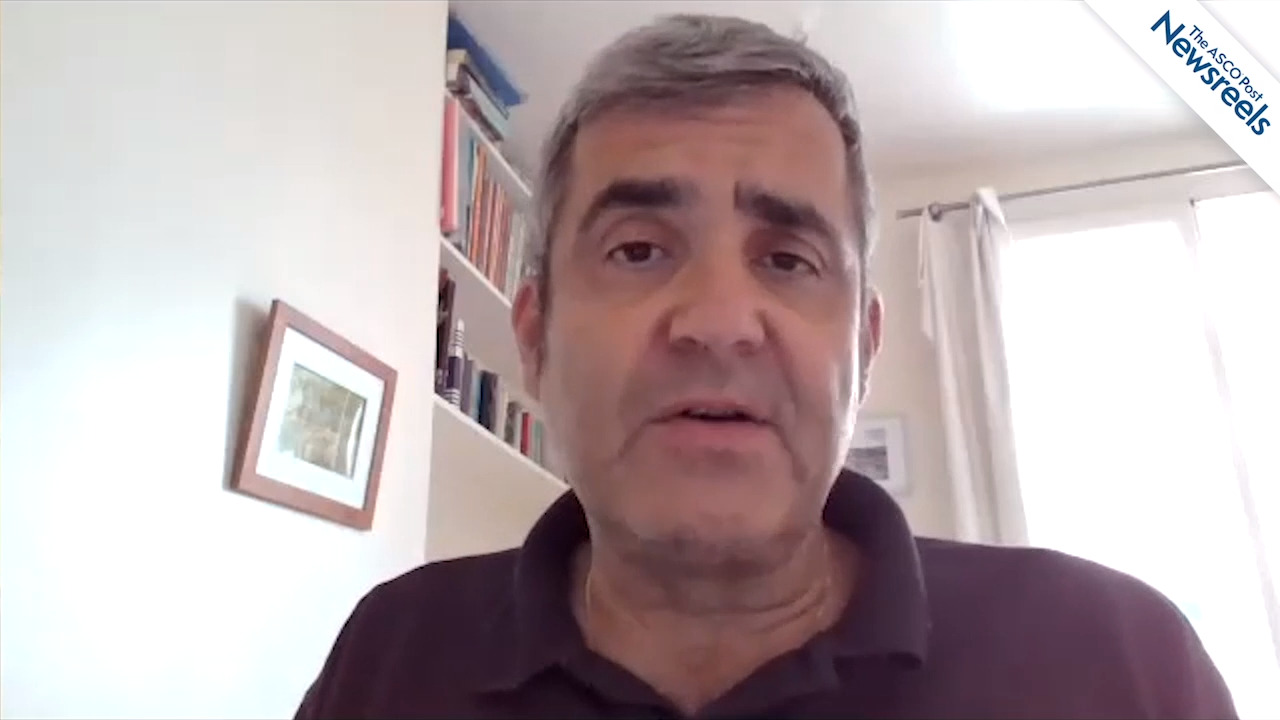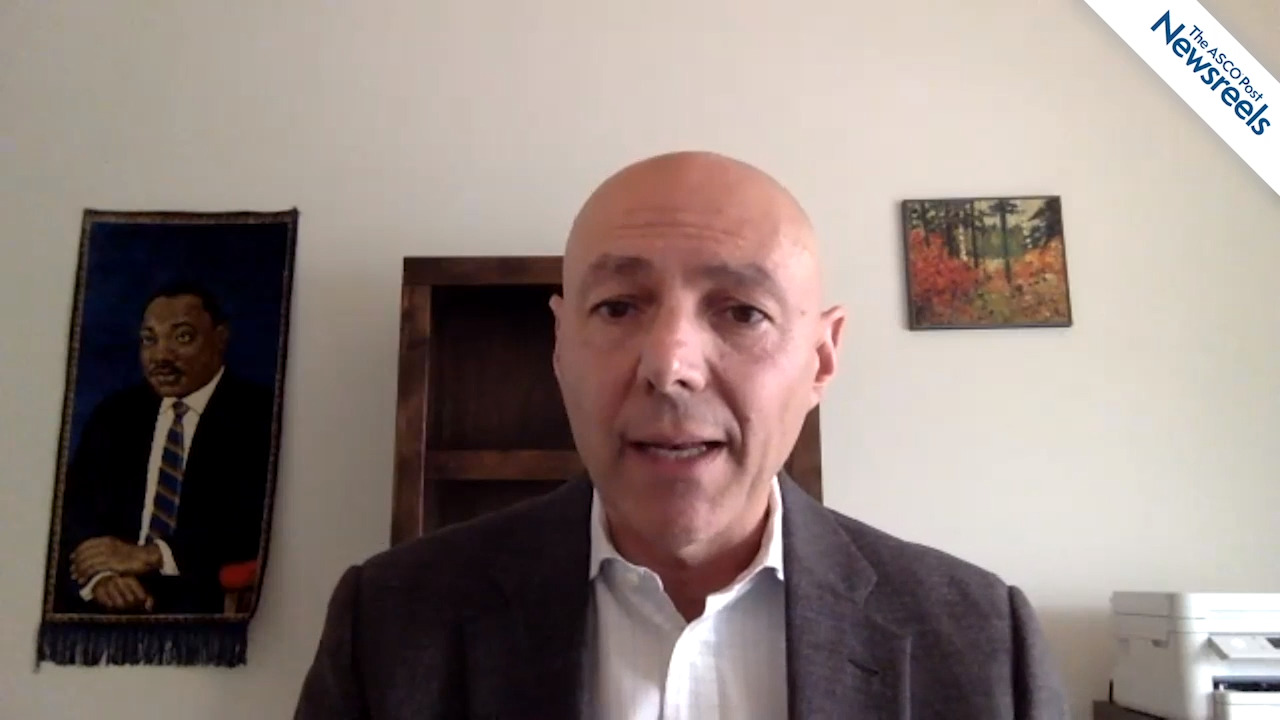Lisa A. Carey, MD, on Triple-Negative Breast Cancer: Paclitaxel, Nab-paclitaxel, and Atezolizumab in IMpassion Trials
ESMO Virtual Congress 2020
Lisa A. Carey, MD, of the University of North Carolina, discusses phase III results from two IMpassion trials, 130 and 131, which explored, respectively, atezolizumab plus nab-paclitaxel vs placebo plus nab-paclitaxel in previously untreated locally advanced or metastatic triple-negative breast cancer and first-line paclitaxel with or without atezolizumab for unresectable disease (Abstracts LBA15 and LBA16).
The ASCO Post Staff
Benjamin Besse, MD, PhD, of the Gustave Roussy Cancer Centre, discusses results of the phase II PRINCEPS trial, which assessed, for the first time, the effect of just one injection of the immunotherapy atezolizumab before surgery in patients with resectable non–small cell lung cancer (Abstract 1215O).
The ASCO Post Staff
Thierry Andre, MD, of Hôpital Saint-Antoine, discusses phase III KEYNOTE-177 findings on the reduced risk of disease progression or death in patients receiving pembrolizumab monotherapy as a first-line treatment of microsatellite instability–high and/or mismatch repair–deficient metastatic colorectal cancer (Abstract 396O).
The ASCO Post Staff
Ezra E.W. Cohen, MD, of the University of California, San Diego, discusses primary results of the phase III JAVELIN trial of locally advanced squamous cell carcinoma of the head and neck, in which the immune checkpoint inhibitor avelumab was combined with chemoradiotherapy followed by avelumab maintenance. Although the study results were negative, Dr. Cohen suggests other regimens that may prove to be effective (Abstract 910O).
The ASCO Post Staff
Erika P. Hamilton, MD, of Sarah Cannon Research Institute, discusses results of the nextMONARCH study, which indicated that combining abemaciclib with tamoxifen improved overall survival. Dr. Hamilton also details adverse events in different arms of the study (Abstract 273O).
The ASCO Post Staff
Paolo A. Ascierto, MD, of the Istituto Nazionale Tumori, discusses phase II results on progression-free survival for patients with advanced melanoma in the SECOMBIT study, whose aim is to evaluate the different sequencing of a BRAF inhibitor (encorafenib) plus a MEK inhibitor (binimetinib) with ipilimumab plus nivolumab (Abstract LBA45).





